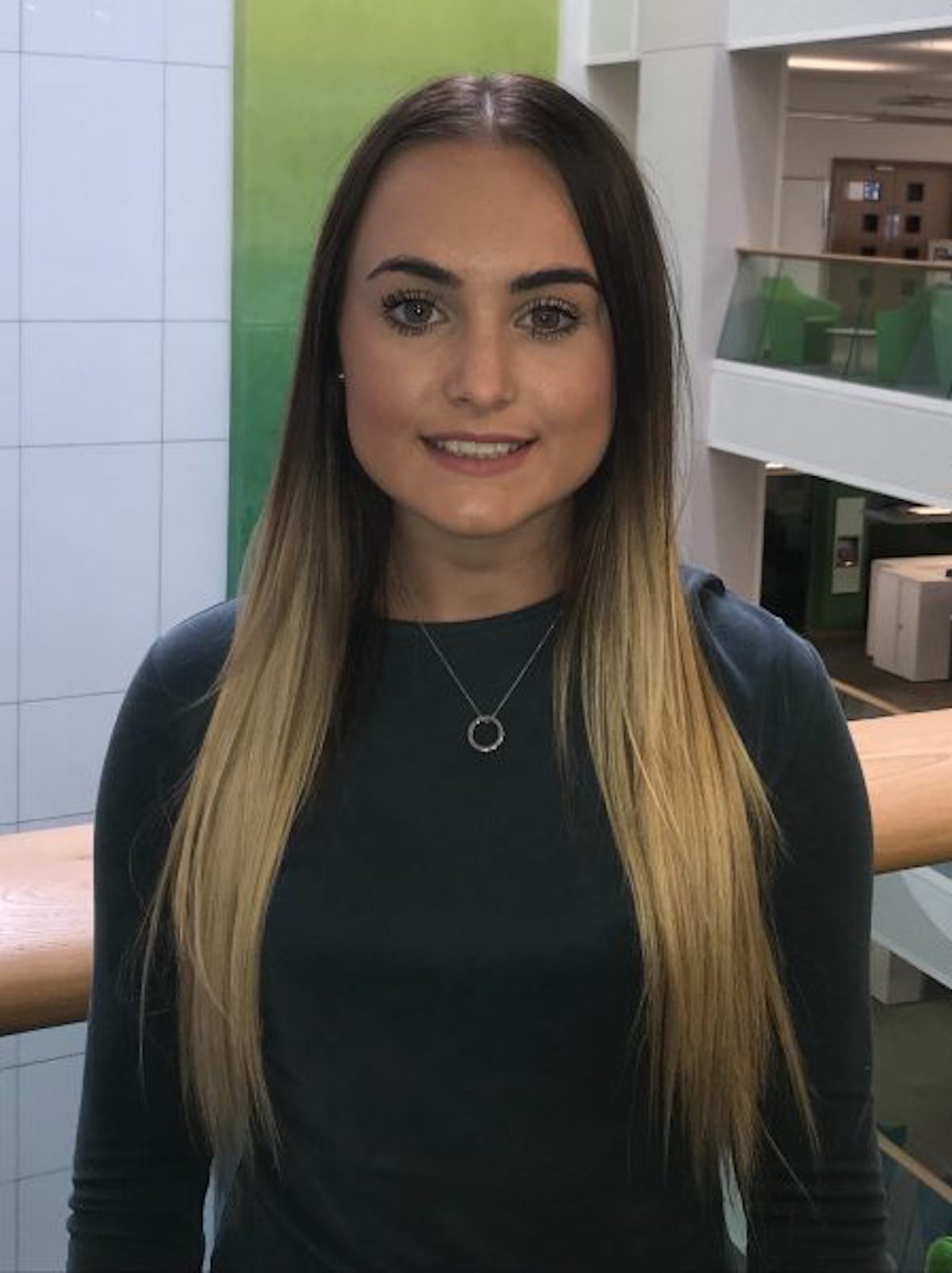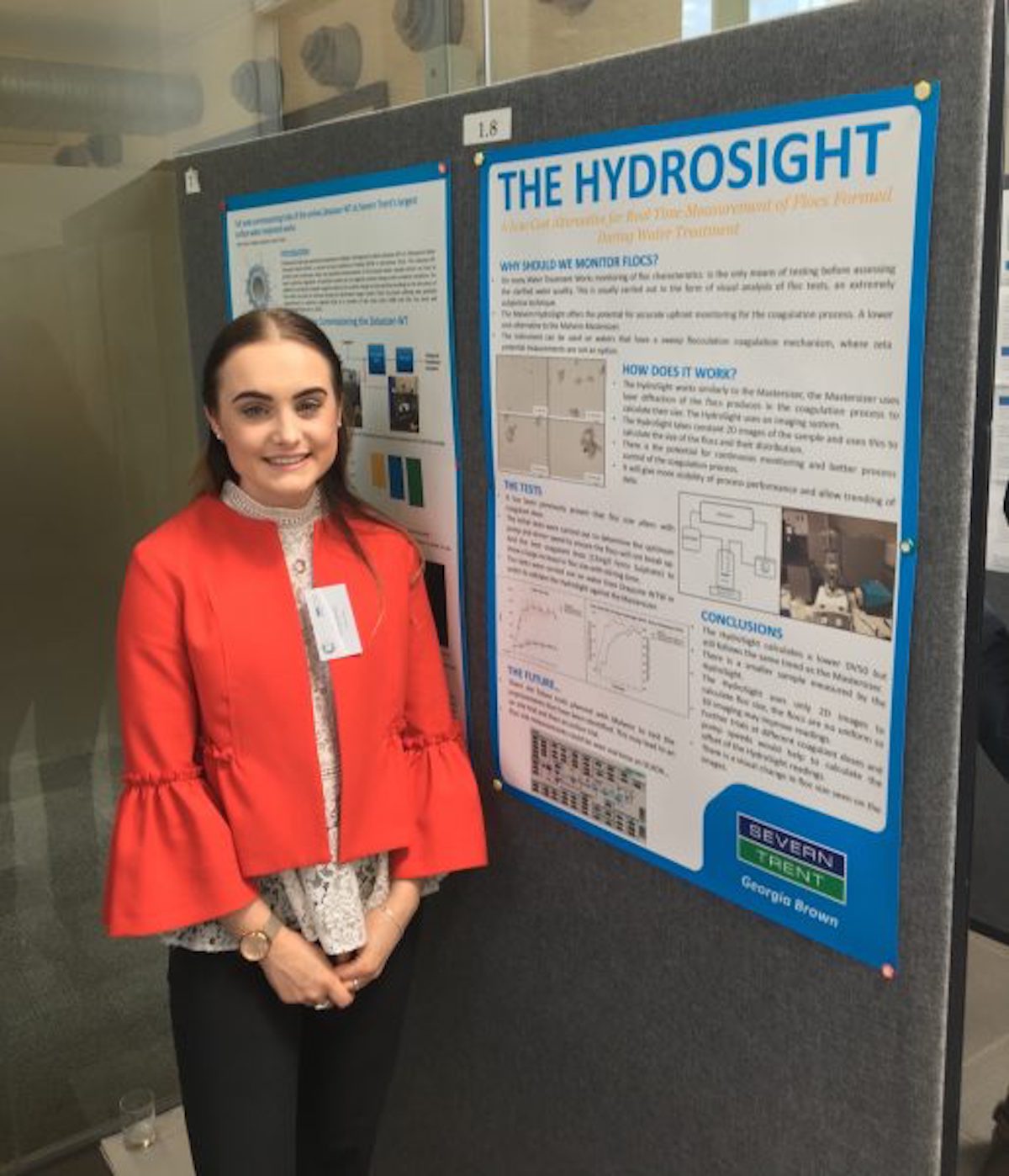25 August 2018
Meet the Apprentice: Georgia Brown from Severn Trent Water

In July 2018, the RateMyApprenticeship Awards recognised Outstanding Apprentices across the UK who are making a difference. Here we introduce Georgia Brown, a Water Treatment Process Apprentice for Severn Trent Water.
Find out what it takes to be an apprentice, and why more young people should consider it an option instead of taking the traditional university path…
Georgia Brown: An apprentice case study
Your Name: Georgia Brown
Your Age: 20
Your Job Title: Water Treatment Process Apprentice
Employer Name: Severn Trent Water
Location: West Midlands

Hello Georgia, can you tell us a little bit about yourself?
I have been working as an apprentice at Severn Trent Water in Coventry for the last two years upon completion of my A-levels. Outside of work, I enjoy cooking, practising yoga and have a keen interest in fashion!
Why did you choose to do an apprenticeship?
Although I had always been very academic at school (I studied maths, chemistry and physics at A-Level), I decided that university was not for me. I did enjoy school life and studying, however I wanted to try something new and make a start in my career.
Craving hands on experience – which I believe is more valuable than qualifications in the engineering sector – led me towards choosing an apprenticeship.
Did you always know you wanted to do an apprenticeship?
Initially I wanted to go to either Cambridge University to study natural sciences or Warwick University to study engineering. I applied to both universities alongside applying for apprenticeships and was offered a place on an engineering Master’s course at Warwick.
Throughout Year 12 and 13, I was still unsure on whether university or apprenticeships were the right path for me.
But, once I had attended assessment centres, spoken to other apprentices and further looked into apprentice schemes, I decided that this would be the best choice. It would provide me with lots of experience as well as qualifications, all without the university debt.
What do you do on a day-to-day basis?
No day is the same in my role! There is a lot of variety due to the reactive nature of water treatment, such as dealing with different problems as they arise. My role is split between two teams within Severn Trent.
The first being the water treatment process team and the second is the operational team at two of the major surface water treatment works within Severn Trent.
Whilst in the process team, I trend and analyse water quality data to identify any problems in the treatment processes. This lets me find the root cause of the problems and help me make decisions on how to optimise water quality and cost.
I also carry out projects on new innovations and lead on key water quality measures for the company. During my time with the operational team on the treatment works, I am involved in running the works.
I carry out frontline maintenance and sampling and testing the water at different stages to ensure that it is within parameters. I will then react to any water quality challenges.
As part of the operational role, I also carry out assignments and write up evidence for my apprenticeship portfolio. These have been assessed, allowing me to gain an NVQ level 3 in water and wastewater treatment.
What’s the best thing about your job?
The best thing about my job is the variety, as I am able to get involved in lots of different projects and visit different teams to learn more about the company.
I am able to learn from experienced people within the business and take on new opportunities to better my career. Furthermore, I have entered competitions for my work, attended conferences and represented the company at careers fairs and other events.
Who supported you the most when applying?
The idea of applying for an apprenticeship came to me from my secondary school careers fair. There were a number of companies in attendance advertising their apprenticeship schemes.
The majority of support that I received came from my family who helped me come up with a list of local companies that may offer apprenticeships.
I did have some help from school, who took me to career events at local companies. However, they were more focused on university applications.
Do you have any tips for students considering becoming an apprentice?

My main tip would be to keep your options open. I found that apprenticeships were more competitive than universities and have a harder application process.
For example, I got into my chosen university straight away based on my predicted A-Level grades and my personal statement…But I was only offered one apprentice job role after many apprenticeship assessment centres, interviews and psychometric tests.
I would advise applying for both university and apprenticeship schemes for those unsure of what they want to do, as it’s a good backup if you can’t get onto an apprenticeship scheme.
To keep my options open, I also applied for many apprenticeship schemes in different sectors, such as finance and engineering.
How does it feel to be voted a RateMyApprenticeship Outstanding Apprentice for 2018?
I am really proud to have won the award for my category! It is great to be rewarded for my hard work, not only from my company who nominated me, but to be rewarded at a national awards ceremony against many other apprentices.
I am sure all of the apprentices who were nominated are really hard working; it must have been a very tough decision on who to give the award to. The award is great for me to use to talk about as it shows that I am dedicated to my work.
Where do you see yourself in 5 years’ time?
Starting in September 2018, I will come to the end of my 2 year apprenticeship. I will begin a new role within Severn Trent as a Waste Process Commissioning Engineer.
This role will allow me to have hands-on experience in the wastewater side of the business and to work with other teams and contractors. I believe having worked in both water and wastewater roles will help with my long term career.
From October 2019, I will be studying part time for two years at Cranfield University for an MSc in Water and Wastewater Engineering.
After completion of my master’s degree, I hope to go onto the process design and engineering teams in Severn Trent and to be starting a manager’s role in 5 years’ time.
Just for fun: what did you want to be when you were younger?
When I was younger, I wanted to be a nurse… then I realised I don’t like blood, needles or wounds so it wasn’t the best career for me!